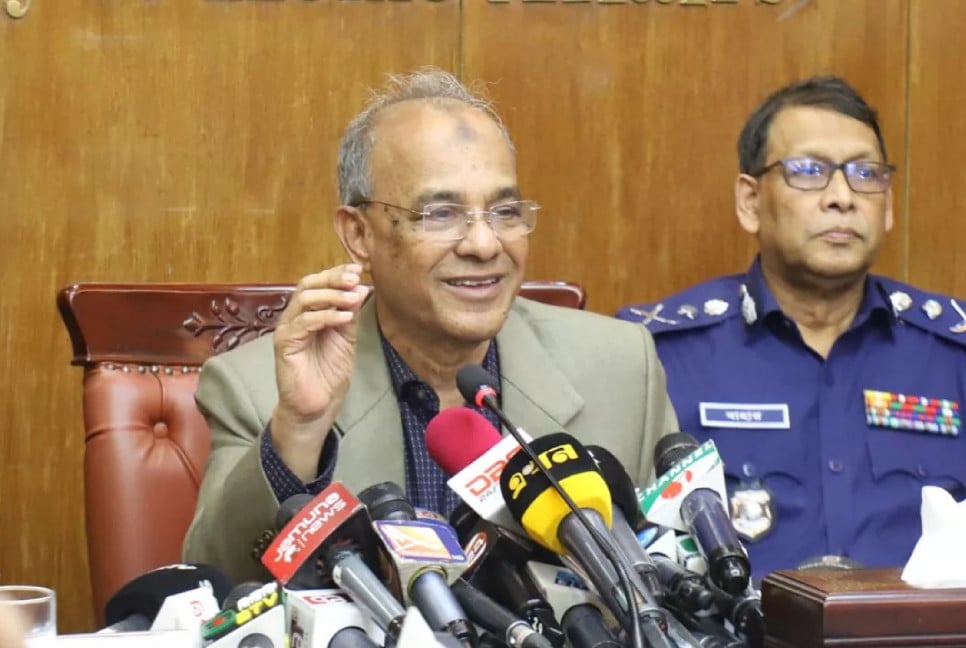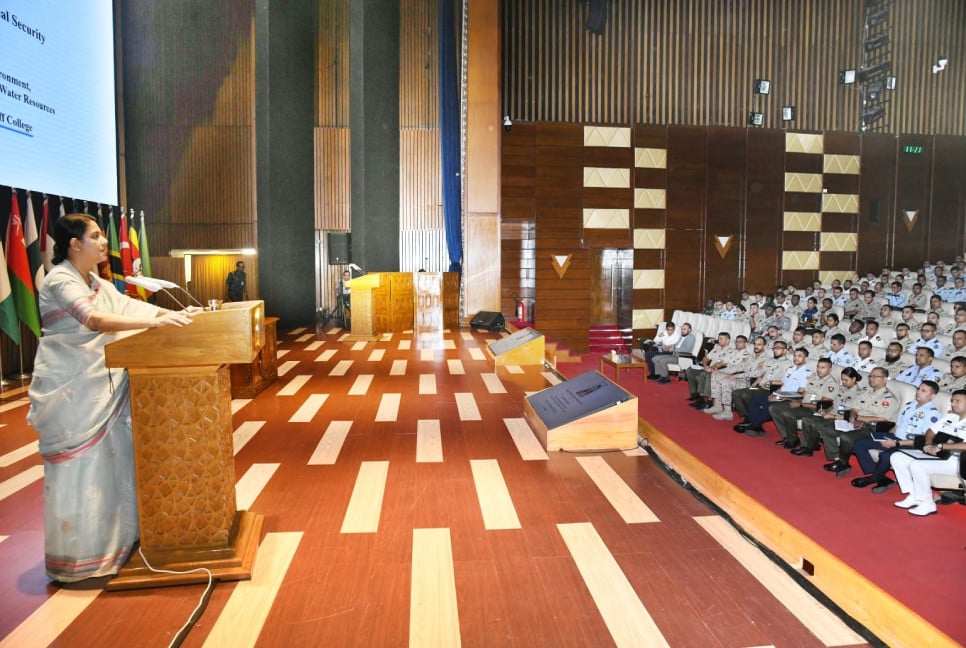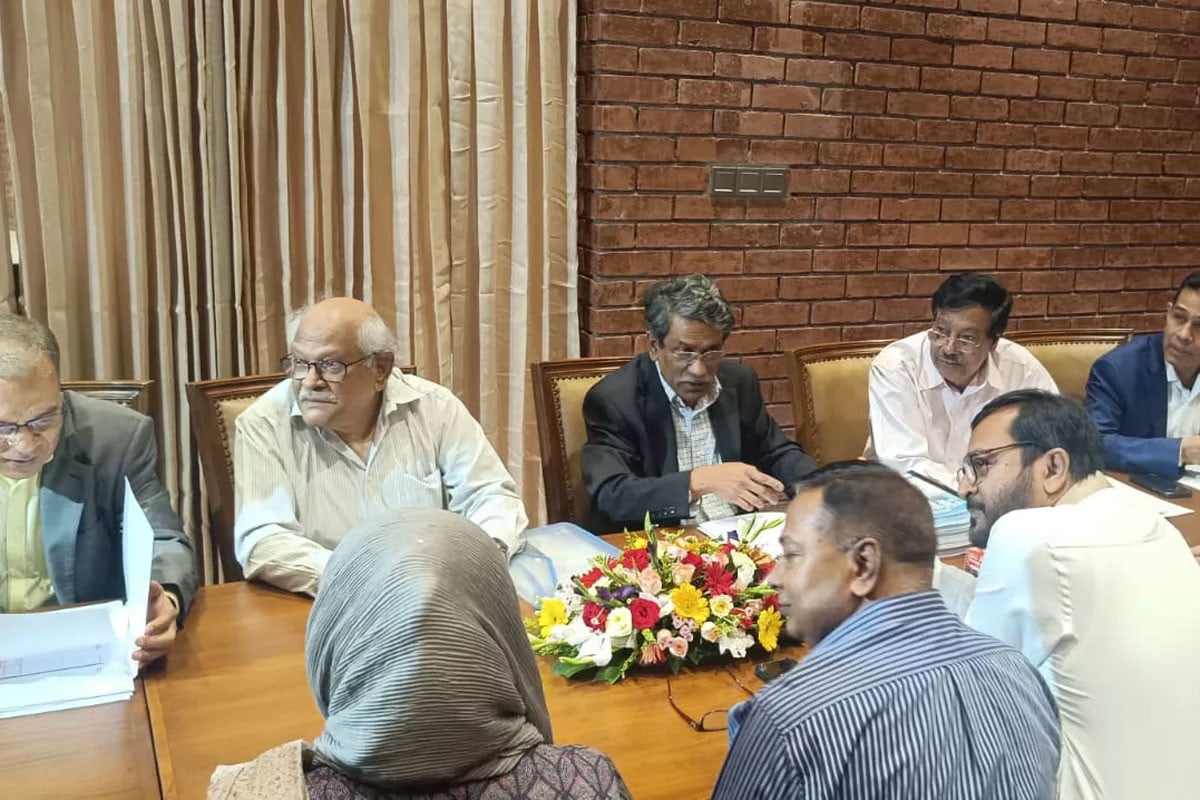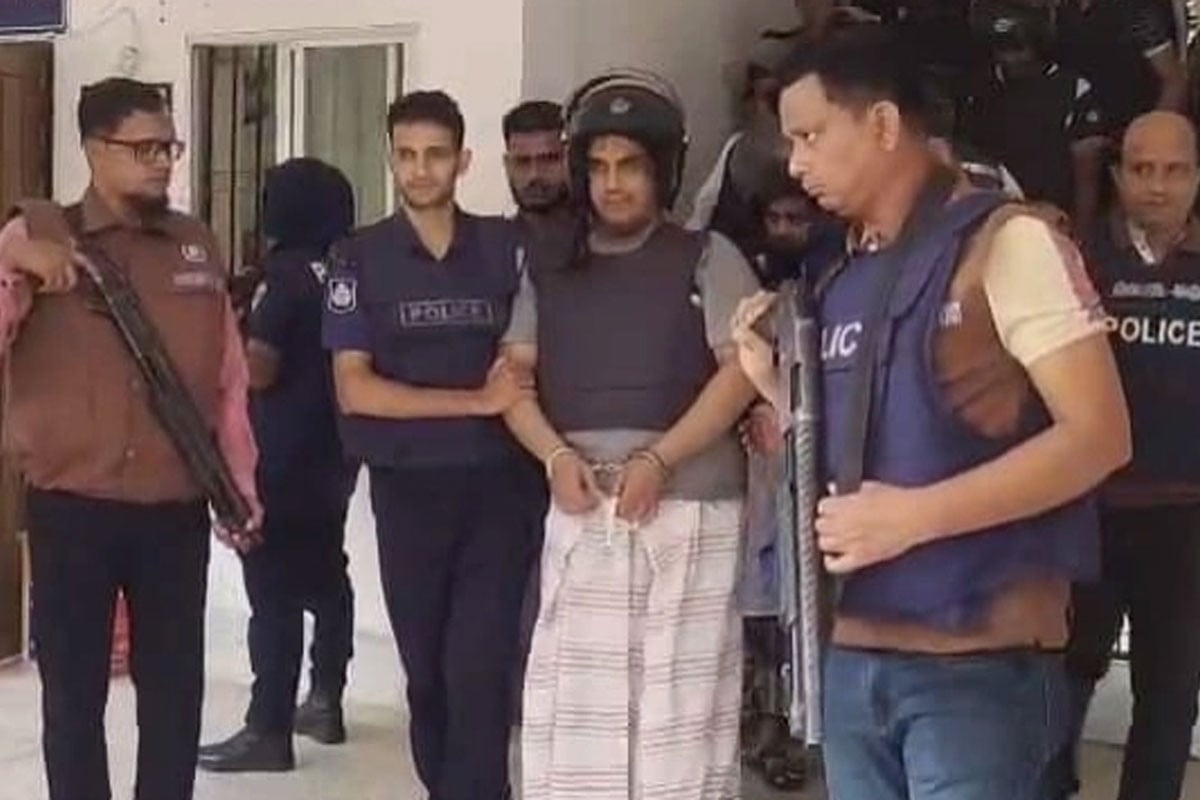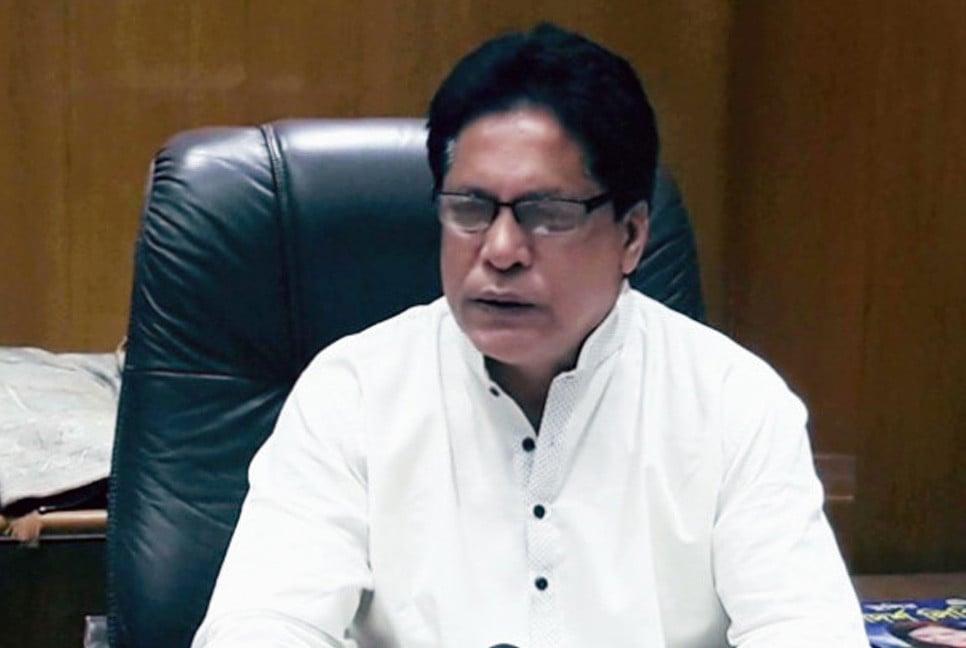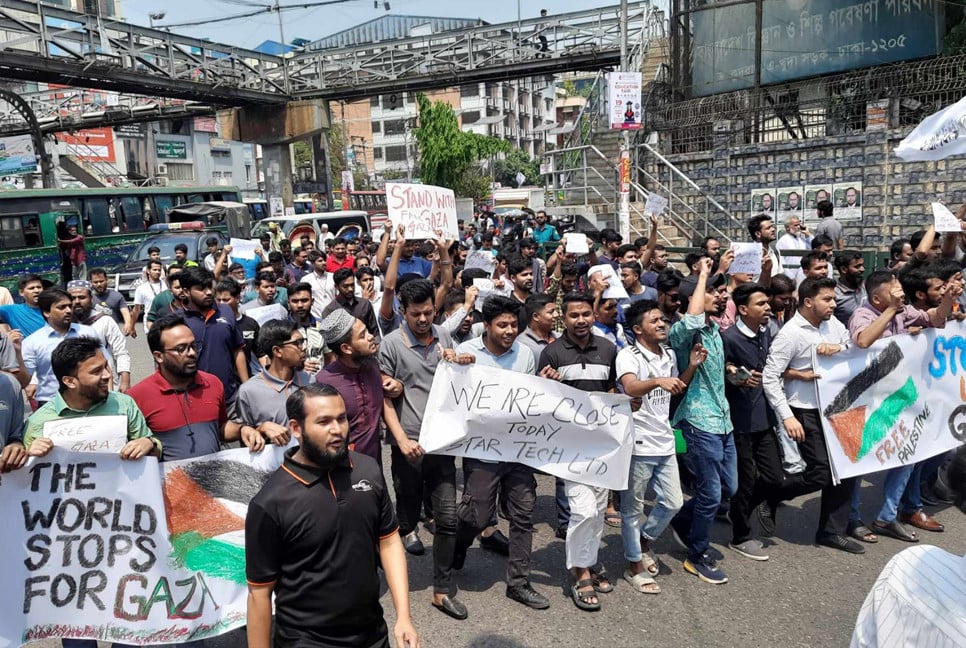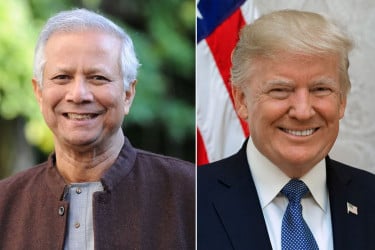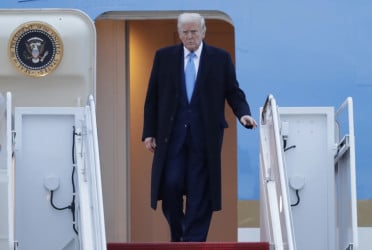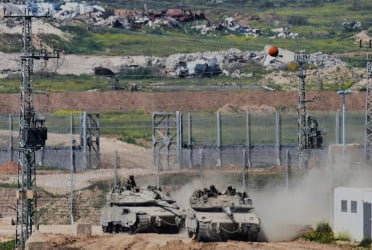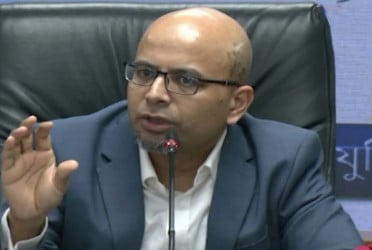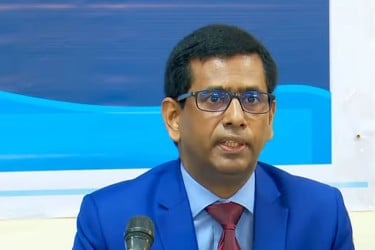India has been compelled to halt the construction of barbed-wire fences along several border areas following the strong stance taken by the Border Guard Bangladesh (BGB) and local residents, said Home Affairs Adviser Lt Gen (retd) Md Jahangir Alam Chowdhury on Sunday.
Addressing a press conference at the Secretariat on the Bangladesh-India border situation, the adviser said that India had initiated fencing work at five points along the border.
Mentioning that four Memorandums of Understanding (MoUs) have been signed between the two countries regarding border demarcation and the responsibilities of respective border forces, he said, "These agreements stipulate that no defense-related construction or development work can be carried out within 150 yards of the zero line without mutual consent.”
The adviser mentioned that India has already fenced 3,271 kilometres out of the 4,156-kilometre border shared with Bangladesh, leaving 885 kilometres unfenced.
He criticised the previous government for permitting certain actions by India that were against Bangladesh’s interests.
“From 2010 to 2023, India constructed fences in 160 locations, creating complications. Another 78 spots also face issues and recently, disputes have arisen at five locations, including Chapainawabganj, the Tin Bigha Corridor in Lalmonirhat, Patnitala in Naogaon, Feni, Kushtia, and Cumilla,” he said.
The adviser revealed that the Ministry of Foreign Affairs has been informed and the Indian High Commissioner may be summoned soon to discuss the matter. "Work at all disputed points has been halted and we will not allow further activities."
Tin Bigha Corridor Dispute
On the issue of the Tin Bigha Corridor, the adviser criticised the lack of reciprocity in agreements. "In 1974, Bangladesh handed over Berubari following the treaty, which was ratified by our Parliament. In return, India was supposed to provide us with permanent access to the Tin Bigha Corridor. While we fulfilled our part, India failed to ratify the agreement in their Parliament," he said.
Despite a 2010 agreement to ensure 24-hour access through the corridor, India constructed fences in the Angorpota-Dahagram area, violating the clause that prohibits construction within 150 yards of the zero line, he explained. “Legally, our ability to obstruct such actions is limited due to prior agreements. If we become overly assertive, India might retaliate by restricting access to the corridor,” he said.
The upcoming BGB-BSF director general-level meeting in February is expected to address these concerns, he said, adding, "We aim to resolve the disputes through discussions and formal communication, including a letter requesting the cancellation of previous unequal agreements."
Strengthening Border Security
When asked about measures to enhance border security, the adviser stressed that Bangladesh has ample resources and the support of its people. "The people are our greatest strength. Together with the BGB, we will overcome any challenges posed by India’s activities," he said.
On whether Bangladesh plans to annul the concessions granted by previous administrations, Jahangir Alam stated, "Our Director General will raise the issue during the February meeting. We will also formally request India to void the unfavorable agreements."
Despite the complexities, the adviser expressed optimism about resolving the disputes, crediting the vigilance of journalists and public awareness. "Media reports have been instrumental in prompting swift action. If not for your efforts, such issues might have escalated," he said.
Source: UNB
bd-pratidin/Rafid

